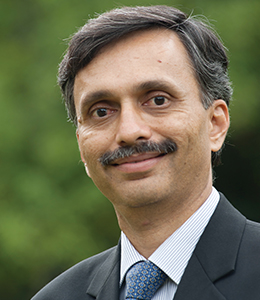
Getting pregnant may be one of the most important phases for a woman and her family but often it is not the easiest, says Padmanabha T K, Head – Healthcare Outcome Services, Wipro Limited
According to UNICEF data (2012), more than 25 million births take place in India every year. Of these, 56 out of every 1000 infants born, die before the age of 5. World Bank data suggests that the infant mortality rate in India is 44 per 1000 live births that include the neonatal mortality rate of 31. A survey conducted by the National Rural Health Mission and the Indian Academy of Pediatrics found that about 75 percent of infant deaths occurred during the first four weeks of birth (or neonatal deaths).

The primary reasons behind infant deaths are issues that expectant mothers sometime face which include prebirth complications, prematurity and low birth weight, neonatal infections, birth asphyxia and birth trauma. These risks increase exponentially in case of pregnancies achieved through IVF or other assisted reproductive techniques. Dr Kamini Rao, Medical Director, Milann “ The Fertility Center, points out, These cases are on the rise considering changing lifestyles and increased stress levels among women. Such patients require regular medical check-ups and frequent monitoring of fetal development.
The monitoring involves conducting a CTG or cardiotocograph on patients which requires the patient to travel to the facility. Critical cases require more frequent CTGs, which adds to the stress level.
Wipro saw an opportunity for technology intervention in this scenario and set out to create a mobile based health solution that could assist patients. Mobile health or m-health is a significant breakthrough as it enables medical care to reach the patient as opposed to the patient reaching out to the healthcare provider. This solution enables doctors to monitor patients more frequently and efficiently.

The Wipro solution allows the pregnant mother to perform the fetal monitoring herself from the comfort of her home while her doctor can review the results on his/her smartphone.
The patient can record her vital parameters using a five lead wearable device which passively collects electric signals such as ECG for computing maternal and fetal heart rate and electro myography (EMG) for uterine activity, from the surface electrodes attached to the abdomen. The device records the heart rate(s) by differentiating and analyzing the ECG from the fetus and the mother. Similarly, the device monitors uterine activity by reading the EMG signals generated from the movement of the uterine muscles.
The device then transmits the data to the cloud via standard smartphones using a custom build app. The secure data is available for viewing only to the assigned doctor, who can access it on his/her smartphone. The data is displayed in a graphical format for easy analysis and also sends alert notifications in case of conditions like tachycardia or bradycardia. This allows the physician to not just access real time data, but also historical reports and keep a close watch on needy patients.
As per Dr Rao, The device helped the doctor prolong the gestation period from 31 weeks to 36 weeks, in the case of one of her patients, who then delivered a healthy baby.
The user friendliness of this device makes it most suitable for working professionals who can carry it to work and use it without any medical assistance. It also helps those residing in remote locations, far away from the hospital. Moreover, the device does not involve any sort of emission, hence is completely safe for the mother as well as the fetus.
In the near future, technology companies will look to capture additional physiological parameters to further assist the physicians in decision making.
Be a part of Elets Collaborative Initiatives. Join Us for Upcoming Events and explore business opportunities. Like us on Facebook , connect with us on LinkedIn and follow us on Twitter , Instagram.












